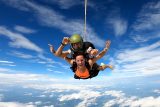Can You Go Skydiving With a Cold?
Blog
 Posted by: Curtis White
6 months ago
Posted by: Curtis White
6 months ago
You mustered up the courage to jump out of an airplane. You picked a day and booked it. And now, the big moment is finally here. You wake up, ready for your adventure, and … you start sneezing and realize you have a cold. You wonder, “Can I go skydiving if I have a cold?” Skydiving with a cold can put a damper on things, to the point that it’s really not worth it.
Having a cold on the ground is bad enough, but adding the adrenaline, physical activity, and air pressure changes of skydiving will only compound the uncomfortable symptoms. Plus, skydiving is a once-in-a-lifetime experience for a lot of people. You want your jump to be as incredible as it can possibly be!
So when should you not skydive? Explore the science of skydiving and pressure to know when it’s safer to postpone your jump.
Why Skydiving While Sick is Not Recommended
The first rule of skydiving with a cold is: Don’t do it. There are plenty of reasons to skip the skydive if you’re feeling sick, but the main one is your ears. The sinus and ear pressure that so often comes with colds mixed with the changing air pressure of freefall is the perfect recipe for a painful experience.
Your ears and sinuses are designed to respond to external pressure and regulate themselves as necessary. To do this, air needs to be able to freely pass through the chambers and tubes that allow pressure equalization. Blocked plumbing can lead to severe pain, including bloody noses or burst eardrums!
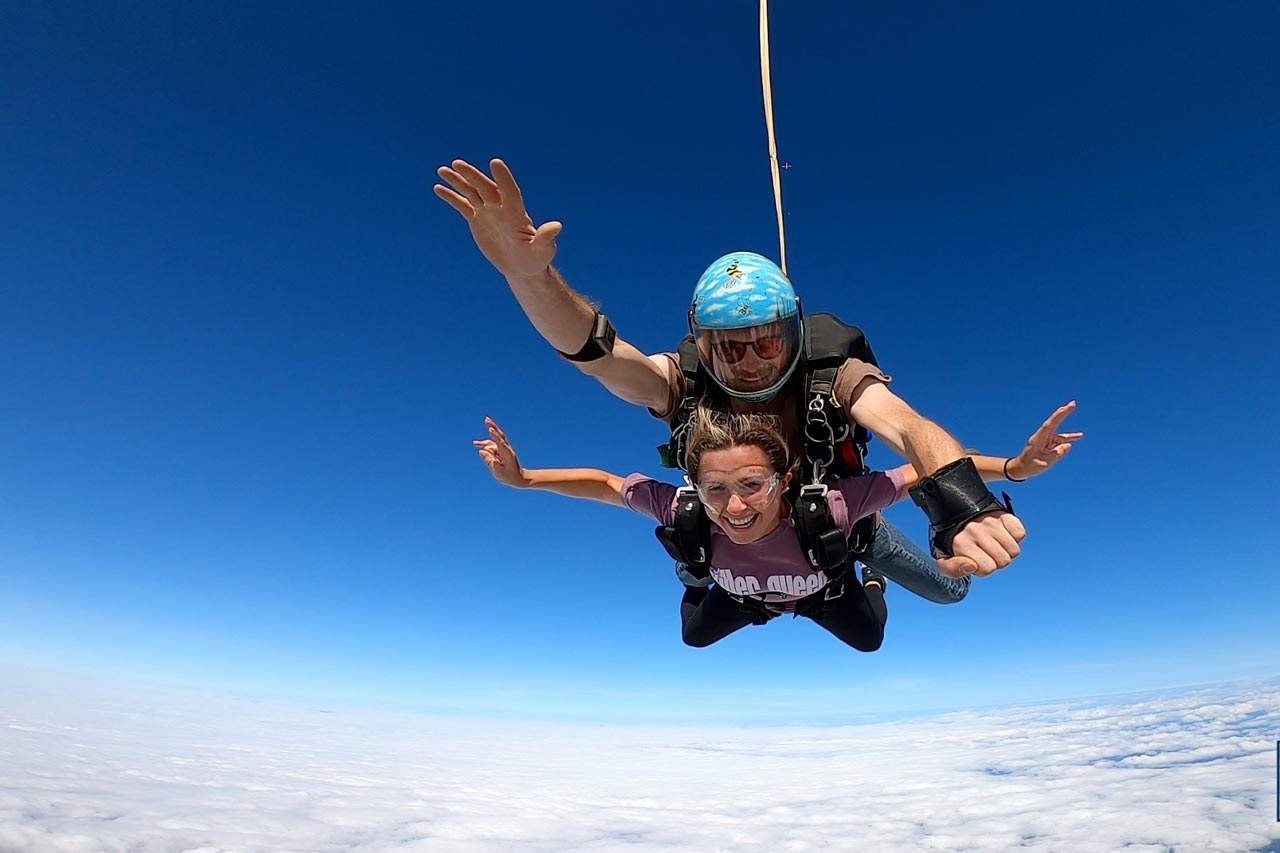
Even if you don’t end up with the worst-case scenario, chances are your skydive will still be less enjoyable. Equalizing ears during ascent and descent can be tough and painful, take our word for it. Lower pressure at altitude may cause sinuses to release, affecting you and your instructor. Mucus does some crazy things in 120 mph wind!
But if it’s mostly about the ears, what about other symptoms of colds? Can you skydive with a sore throat? Ultimately, only you can gauge the severity and discomfort of your symptoms. If your sinuses and ears are clear and all you have is an annoying scratchy throat, chances are you would be fine to skydive.
But don’t push it! It’s not worth jeopardizing your experience when you can easily go another day when you’re feeling your best. And, don’t forget, tandem skydiving requires very close contact with your instructor and other people in the airplane. Use your best judgment and reschedule if you think you might be contagious!
If you’re experiencing symptoms of a cold and are unsure about going skydiving, it’s best to reach out to a medical professional. You can also contact us to talk through safety measures and reschedule if needed.
Skydiving and Air Pressure
Anyone who’s flown in a commercial airplane before knows that passengers fly in the comfort of a pressurized cabin. And if you weren’t sure, the demonstration on oxygen masks will surely remind you. As such, the popping and pressure in your ears is minimal because you aren’t experiencing the full range of air pressure changes that are going on out in the open sky.
Skydiving is different. Our planes aren’t pressurized, and, even if they were, the door is going to open anyway! Without any pressurization in the cabin of the jump plane, your ears will be adjusting to pressure changes for the entire ride to altitude. And even more so on the way down.
You’ll be traveling at 120 mph, which will take you from your exit at 14,000 feet to the parachute opening at 5,000 feet in one minute! That’s about 1,000 feet every five and a half seconds, so you can imagine how quickly the pressure is changing in your ears and sinuses. That’s why it’s so important to have a clear head (literally and figuratively) that will allow you to equalize your ears.
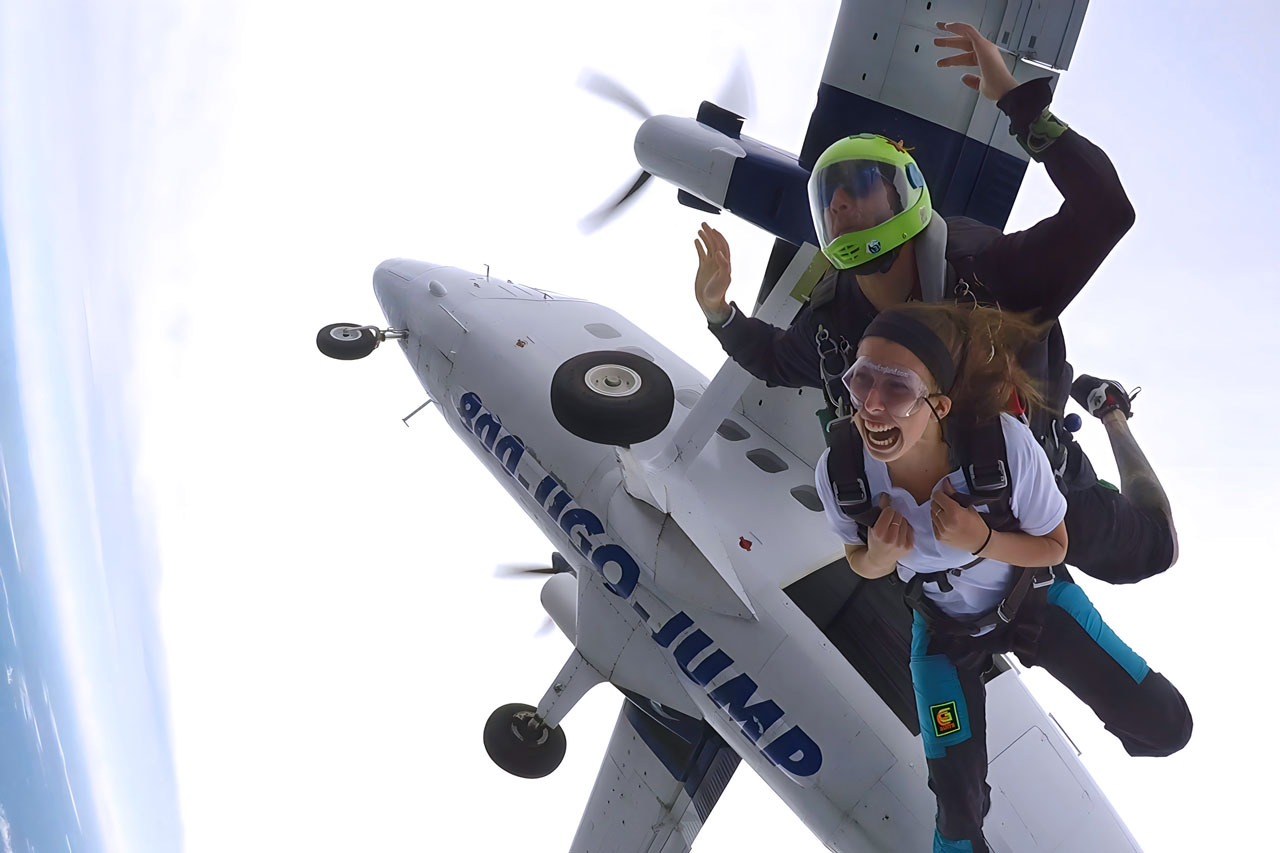
All Ears Being Equal
The easiest and most common way to equalize the pressure in your ears is a technique used by SCUBA divers and casual air travelers alike. You start by pinching your nose so that both nostrils are completely plugged, and sealing your lips so no air can escape through your mouth. Next, gently blow “out” (or into) your plugged nose. Once you feel the air move into your ears and clear the pressure that built up during the jump, you can stop.
Don’t worry about trying to equalize your ears in freefall. You’re moving too fast to be able to keep up with the pressure changes anyway, and trying to reach your nose and focus on the equalizing technique will take you out of experiencing the skydive.
The best time to do this is immediately after your freefall has ended, once you and your instructor have settled into your open parachute. You’ll feel some pressure in your ears (though it shouldn’t be painful), and the relief of clearing them will only add to the euphoria of the whole experience. You can continue to clear your ears as you descend under your parachute as needed.
It can also help to move your jaw around and get those mandible muscles working, or chewing gum. Though be careful having anything in your mouth during the actual jump – the only thing worse than metaphorically choking out of fear would be actually choking in freefall!
Are you feeling good? Book a jump with us today and see how skydiving can make you feel even better! Blue skies!
Categories:
You May Be Interested In:
Enter to Win a Free Skydive
Join our email list and enter to win a free tandem skydive. Drawings in April and December; winner announced on social media.
You’ll get a $10 coupon toward a tandem just for signing up! Must be 18 and under 240 lbs to jump.
*By submitting this form, you are consenting to receive marketing emails from Skydive New England, 40 Skydive Lane, Lebanon, Maine 04027. You can revoke your consent by using the SafeUnsubscribe link located at the bottom of every email. Emails are serviced by Constant Contact.
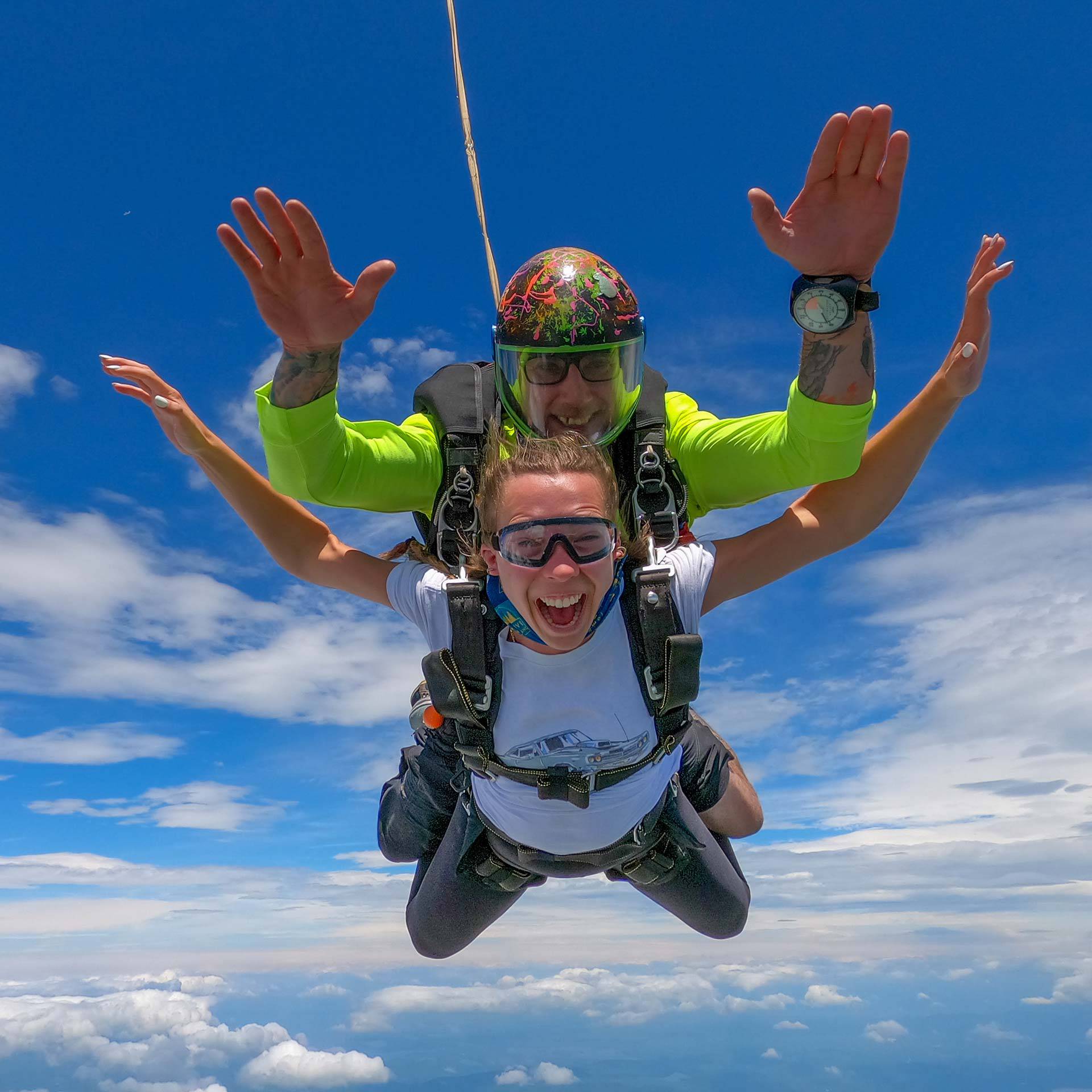
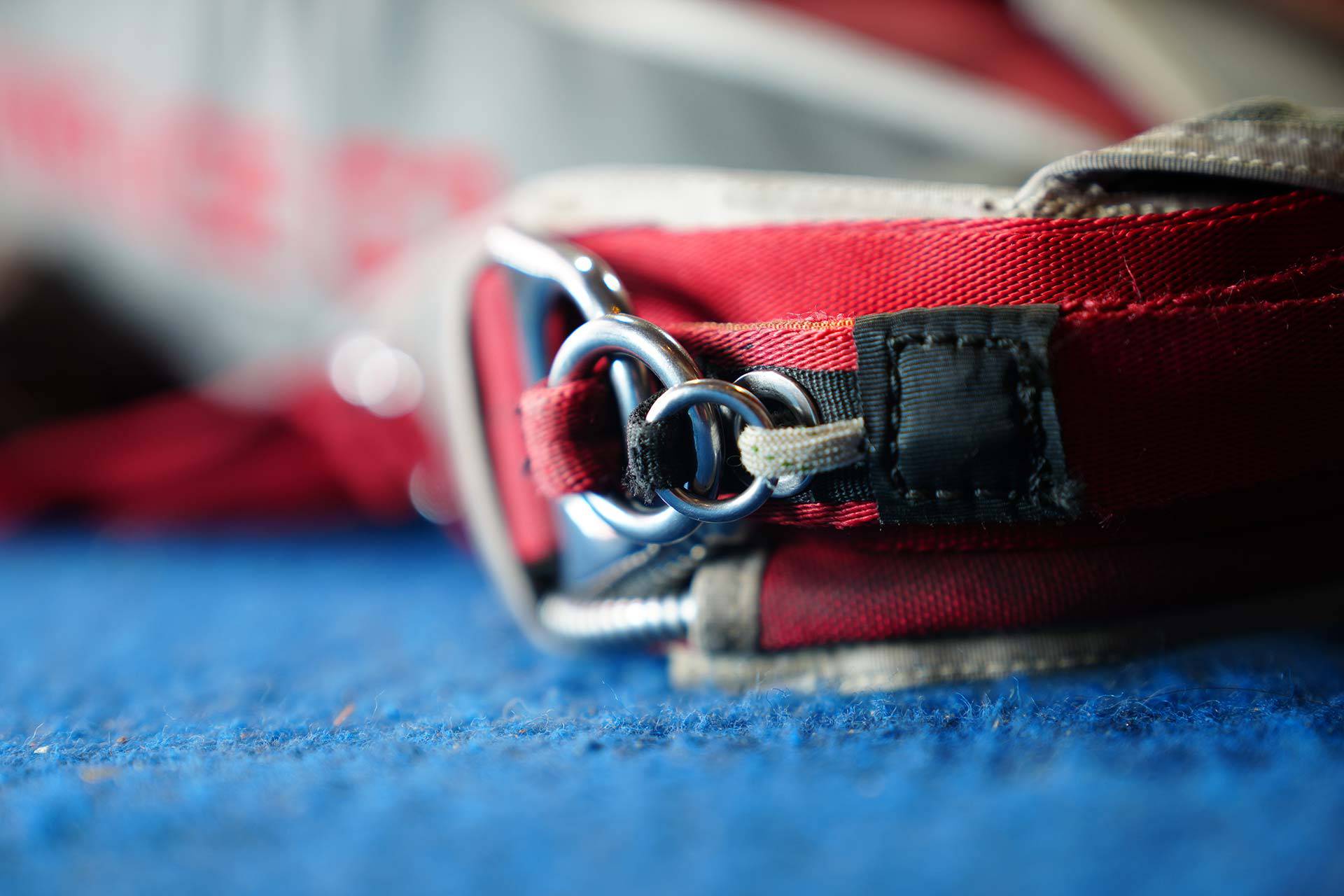
Even More Wicked-Fun Than It Looks!
Come see why the biggest DZ in New England is also the best.

